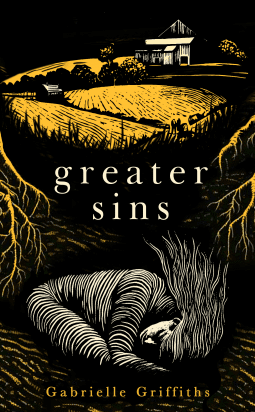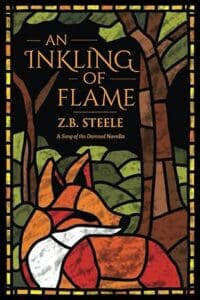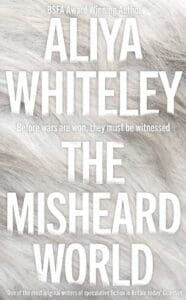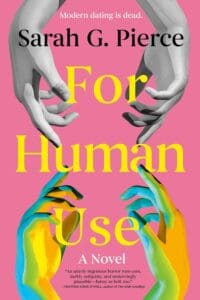
Synopsis:
Who will cast the first stone?
1915, the Cabrach, Aberdeenshire. An isolated Scottish community is disturbed by a strange discovery: a body in a peat bog, perfectly preserved. Two people haul the body from the ground: Lizzie, the wife of a wealthy local landowner, and Johnny, a nomadic singer and farm hand. At hearthside and inn, people whisper: what have we unearthed?
One unveiling brings others. For Lizzie, tenacious but trapped, the discovery reveals unanswered questions about her past while for Johnny, it threatens to uncover a history he’s trying to outrun.
As their stories entwine, a series of unsettling events befalls the isolated community: ruinous weather, a damaged soldier, strange occurrences that cannot be explained. Against the echoes of distant war, and with the boundaries blurring between right and wrong, everyone is looking for someone to blame…
Review:
Gabrielle Griffiths’ “Greater Sins,” is an absolutely stellar debut that oozes with a subtle horror. Whilst it’s elegant on the surface, with its gorgeous prose, beautifully drawn characters, and atmosphere so thick you can smell it, at its cloying, festering core it’s dirty, rotten, and uneasy. It’s the kind of horror that silently creeps up on the reader, inconspicuously plants itself in your subconscious and slowly spoils until you’re left wondering why you feel so bloody wrong. A historical, folk horror set in Aberdeenshire, Scotland during World War One, the rural community of Cabrach, is ripe for forbidden romances, horrifying discoveries and even more horrifying revelations. Thank you Doubleday Books for my ARC, “Greater Sins,” is publishing March 27th.
It’s 1915, and despite the fact that the war is only really raging way down South, the impact is still very much felt in Scotland. Cabrach is a quiet, rural place, a small, farming community made even smaller by the fathers and husbands who have gone to fight. One of them is William Calder, leaving his wife Lizzie, and sister Jane. It’s in his absence, whilst gathering moss, amidst the peat, Lizzie finds a box. And in that box, she finds a woman.
“Greater Sins,” follows two protagonists over two timelines. We have Johnny, a nomad ploughman who sings for his supper. His chapters are heavy with Scottish vernacular, he is gritty and earthy, and seemingly honest. Lizzie’s narrative contrasts starkly with Johnny’s, she is introspective, and her 1915 chapters seem laced with the desperation of somebody trapped in a stifling marriage, in an equally stifling era- a contrast to those set 10 years earlier in which the weight of her circumstances feels just a little lighter. Together, these two perspectives create a beautiful contrast: male and female, working-class and gentry, labor and constrained privilege. When their timelines entwine, with the absence of Lizzie’s husband, their relationship grows in tandem with the tension, it’s truly masterful. At the cloying, festering core I previously mentioned, “Greater Sins,” is a story about human frailty, forbidden desire, and the weight of secrecy. As quiet and inconspicuous in its terror as it may be, its hints at the moral failings of its characters and society are less subtle. It dives headfirst into some pretty murky waters. Particularly the hypocrisy, and superstition, of post-Victorian society.
The backdrop of the first World War is crucial to the novel throughout- not in terms of dramatic battlefield scenes, but as a constant, looming presence. Young men are leaving, and whilst life at the Cabrach trudges on, it’s burdened by the weight of who stayed behind and why. This creates a perfect breeding ground for resentment, suspicions, and secrecy. The ideal place to find a perfectly preserved human body some would argue.
In “Greater Sins,” Griffiths has crafted a novel that is both rich and indulgent in prose and plot yet deeply unsettling. Every character has their secrets, every decision made has weight, and every whisky-breathed, hushed exchange feels like a fuse has been lit. It’s a tale of buried guilt, sins if you will, both literal and figurative, told with the kind of elegance, nuance and quiet cruelty that makes it hard to part with it, even when your skin is crawling.









Leave a Reply